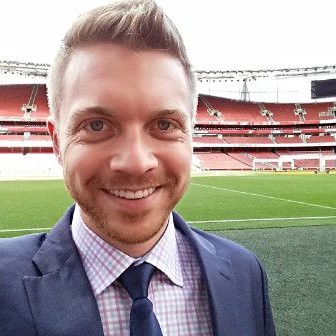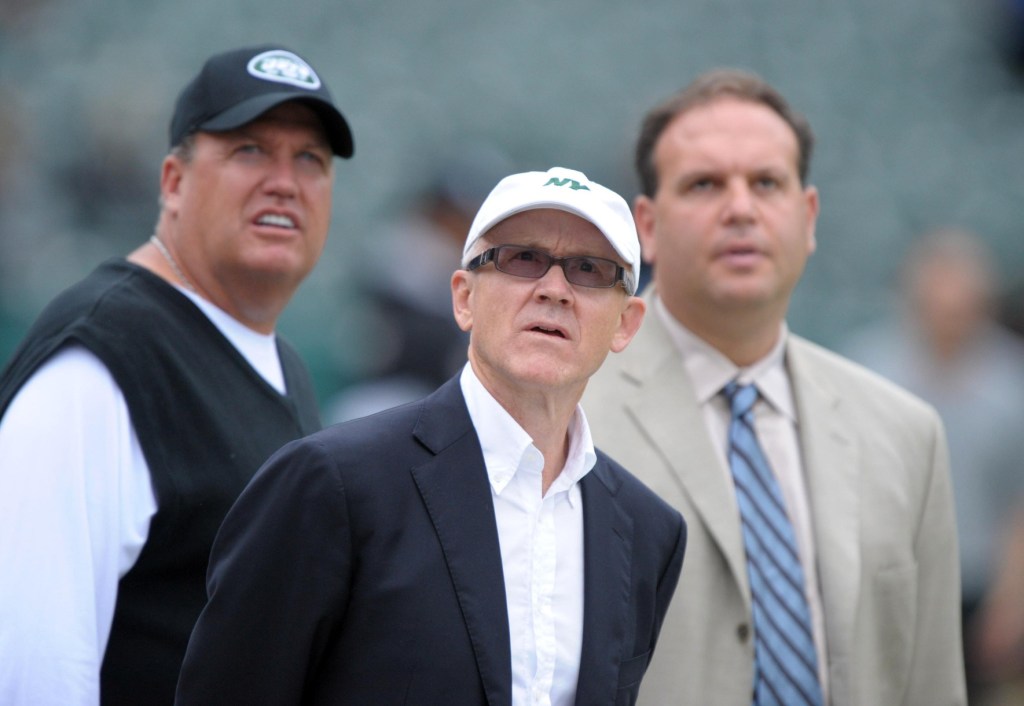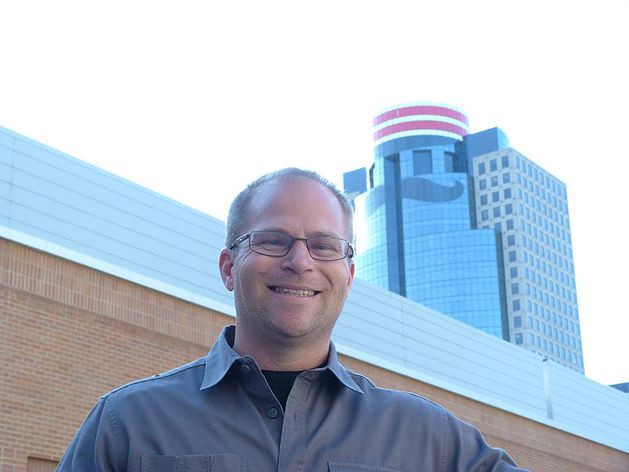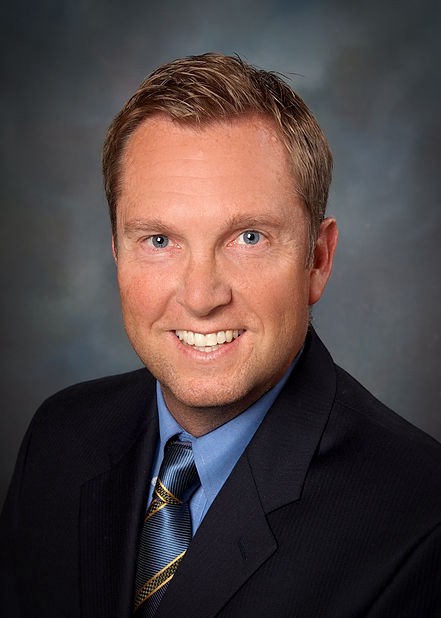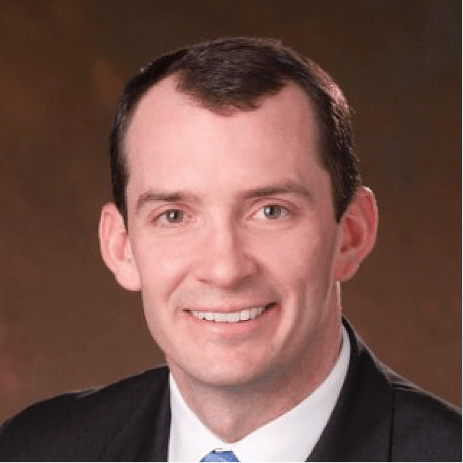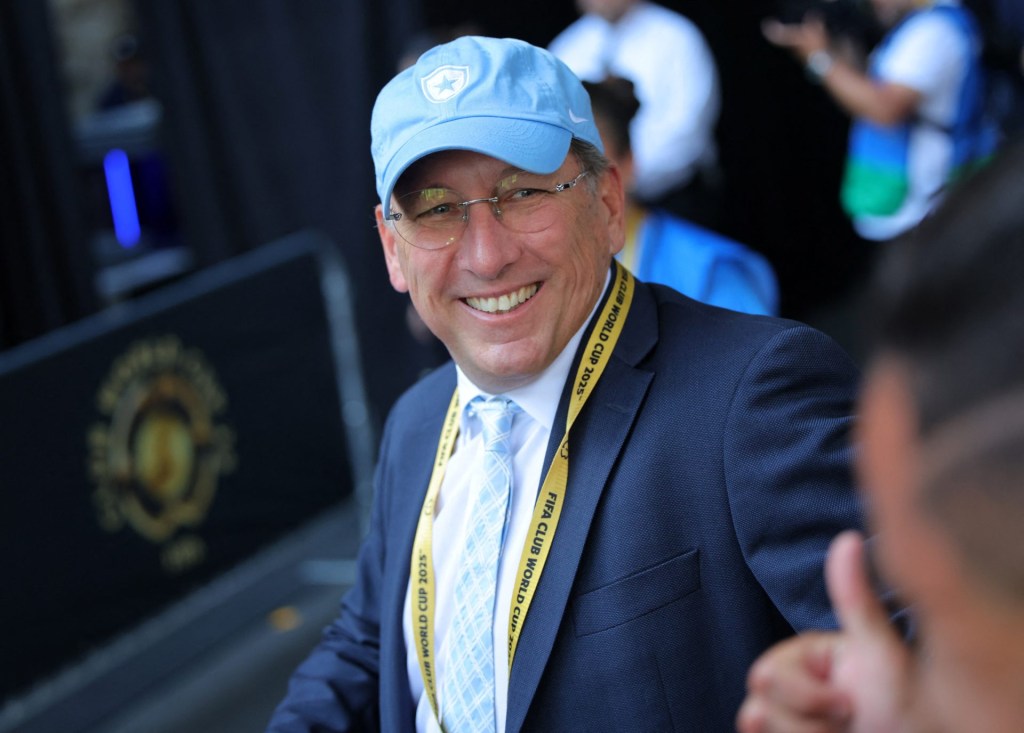By: Mike Mackin, @Mmackin17

Front Office Sports is thrilled to have had the opportunity to sit down with Chad Biagini, Managing Director and Co-Leader of Global Sports, Leisure, and Entertainment with Harvard Group International. Harvard Group International is a global mid-size retained executive search firm that represents Fortune 500 and startup-to-mid-sized companies across more than forty industries. Specific to sports, Harvard Group International has completed numerous sports placements across the NHL, NBA, NFL, motorsports, and UFC, just to name a few.
A native of Atlanta, Chad began his career in the search industry over a decade ago within the financial services industry. Throughout his career, he’s placed more than 200 senior executives globally across more than 15 industries including CPG, Automotive, Retail, Hospitality, Media/Entertainment, and Nonprofit. Chad joined Harvard Group International in 2012 to broaden their search radius and help build the sports and entertainment practice that focused on identifying the best executive-level talent from around the globe.
Many of his clients seek candidates with prior sports experience; however, a large portion of the individuals for whom Chad searches are employed outside the sports industry. “The sports industry has a tremendous talent pool, but other industries are more acclaimed for their preeminence in areas such as marketing, branding, digital, business intelligence, analytics, and human resources. These skill sets are transferable across industrial lines.” Harvard Group International is known for its ability to attract and evaluate talent from multiple industries to help their clients find the best fit for their strategic objectives. But that’s not to say that there isn’t a cultural shift to be made to assimilate into the sports industry. One of the biggest transitions, which has been mentioned before by many in the industry, is that the time commitment is huge. “Outside of sports, you’re going to see a lot of 9-to-5 jobs. Granted, at the executive level you’ll work more than that, but overall, you can expect more working hours [in sports] that will require your consistent focus.”
One of the main differences he notices among teams is the variance in culture across the whole organization and into the front office compared to a similar office in the corporate world. Most, if not all of the individuals working there have dreamed their whole lives about getting to that point of working with a professional team, and with that comes a heightened passion and devotion to the business. “Kids growing up likely didn’t look up at the stars and dream about working in the insurance industry, for example, so the culture [of sport] is very different; it’s one that is typically more emotionally engaged.”
For someone looking to enter from the outside, they must be prepared to be immersed within that culture to avoid falling behind. “Sports teams, for a long time, hadn’t thought about their brand narrative, their story telling. So for a marketer who’s transitioning from consumer products where it’s very much about brand building and engagement, it can be a big adjustment going to a sports team which is likely thinking more about promotions and sales for Saturday’s matinee.” He also added that in this example, a lot of marketing roles aren’t necessarily marketing roles, in the pure sense. “Blue-chip brands rarely roll marketing into sales, but yet sports teams often do.” Because of this, potential employees, especially those from outside of sports, must go into an interview knowing exactly what the team is looking to achieve through its executive vacancies.
Just like any team on the field, the ones off the field are also looking for the best talent. Going in, the hiring staff should know exactly what they’re looking for, and they are tasked with finding the individual who best matches the role. Many times, Chad has seen the A+ candidate get turned down simply because they wouldn’t have meshed with the original team when they arrived. “Cultural fit is equally important as technical fit.”
That brings up the question, how does someone fit that mold of what the team wants? The overall network of people is a fairly small, tightly knit group of individuals. Younger professionals will be much better off stepping out and interacting with executives as much as they can. Attend conferences and seminars to network with people there to make your face known to the individuals in charge. Most importantly, they must show a hunger and passion for wanting to be in the industry and develop the skills necessary that tailor to the desired job function. “The sports industry seeks entrepreneurial people who can think holistically and multitask. Develop those traits by getting experience in every area of the professional spectrum. Diversify your skillset; don’t be contained to one or two functions. Immerse yourself in other projects search for new challenges, and if one comes up, accept it!” But he did have one thing to add, “Be prepared to start in sales. A lot of teams place a strong emphasis on sales; it’s a great place to learn the lifeblood of the organization.”
Avoid having a toxic attitude; toxic employees are more detrimental to an organization, regardless of their talent level. Be somebody who people want to be around on a daily basis. And through rejection, as every person trying to break into this industry has experienced, maintain integrity and respect. You’ll never know where paths may cross later on.
“Character and attitude are vital throughout the recruiting and interviewing process. Good or bad, it will leave a lasting impression with all parties involved. Poor character and burnt bridges will always knock an applicant out of contention, especially in organizations where cultural fit and character are important. Be humble about your strengths, and be open to criticism.”
Advancement is highly dependable on the person and the organization, but it’s important for professionals to know their weaknesses and their flaws. “Athletes know their strengths and weaknesses, and they will work tirelessly to improve upon those skills. Similarly, professionals and executives need to be equally cognizant of theirs. Be aware of weaknesses because they are recognizable to everyone. Identify what they are, and work to improve them. Those who’ve advanced the furthest in their careers discovered their flaws early and fixed them. Realize you can always get better and fervently pursue ways to improve yourself.”
To further connect with Chad, follow him on Twitter @ChadBiagini and click here to view his Linkedin profile!
